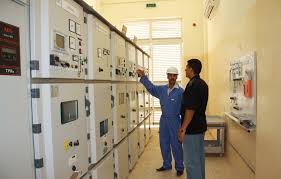
Nature of work
A control and instrumentation engineer develops skills in specific control disciplines such as advanced process control (APC), distributed control systems (DCS), programmable logic controllers (PLC), and supervisory control and data acquisition (SCADA). The use of these disciplines will depend on the exact nature of individual job roles.In general, tasks and responsibilities include:
Designing and developing new control systems.
Testing, maintaining and modifying existing systems.
Analyzing data and presenting findings in written reports.
Managing operations.
Working collaboratively with design engineers, operation engineers, purchasers and other internal staff.
Liaising with clients, suppliers, contractors and relevant authorities (e.g. the Nuclear Decommissioning Authority).
Project managing within cost and time constrained environments. Troubleshooting and problem-solving.
Understanding and ensuring compliance with the health and safety regulations and quality standards of the country in which work is undertaken.
Providing advice and consultancy support.
Purchasing equipment.
Writing computer software and test procedures.
Developing new business proposals.
Accepting responsibility and a level of accountability that is proportionate to the seniority of the position.
Environment of work
Irregular working hours can be normal for control and instrumentation engineers (C&I engineers), who may need to be on-call or on standby to deal with faults which occur at the plant or site. Additional overtime payments, or alternatively an on-call allowance may be incorporated into the annual salary. Work may be based in an office, laboratory or factory, depending on the nature of the organization. Visiting clients and working on-site is a common aspect of the work.Some positions may carry high levels of responsibility and may be stressful, particularly at a very senior level where accountability lies directly with the C&I engineer. Similarly, C&I engineers often have to work under pressure, to tight deadlines and within budget.
Part-time work may be possible. Self-employment may also be an option with considerable experience, although this is most likely to be in consultancy or contract work. There is continued growth in sectors such as power generation and renewable energy research, which means there are good opportunities for C&I engineers.
Professional life
As a control and instrumentation engineer (C&I engineer) progresses in his/her careers, he/she typically acquires specialist knowledge of a particular industry sector and/or area of C&I knowledge. Incorporated engineer (IEng) status is open to those with a degree and further study, plus experience, and is usually associated with middle management roles, with a specific level of responsibility. This may include leading a team or managing test programs.Senior level positions are normally held by chartered engineers (CEng) who have a masters qualification, significant training and experience. Most senior positions require substantial experience in a particular industry sector or specialist area. Senior positions carry the highest level of responsibility and typically include planning and management activities, as well as leading new developments. Senior engineers in production and operation functions can often be representatives at board level. Progression from IEng to CEng level is possible with additional training, experience and qualifications.
Typical starting salaries for graduates range from 260000-300000
Getting the job
Several institutions offer specific control and instrumentation engineering courses. Other popular degree courses for control and instrumentation engineers (C&I engineers) are electrical and electronic engineering degrees, which may include specific C&I elements or modules. However, many other engineering, technical and scientific degrees are also considered appropriate training, including: Applied physics or physics;
Computer engineering;
Mechanical engineering;
systems engineering.
It is useful if his/her degree is accredited by one of the professional engineering institutions. If an undergraduate degree has not included control engineering content, some employers may ask for a relevant postgraduate qualification such as an MSc in Control Systems or Advanced Control and Systems Engineering.
C&I engineering is open to those with HNDs in all engineering subjects, although the following subjects are particularly relevant:
Computer-aided engineering/computer engineering.
Electrical engineering.
Electronics.
Regardless of the level of entry, work experience is as valuable in this sector as in any other. Many large employers offer structured internship programs and vacation placement schemes. These provide an excellent insight into the nature of the work and are often hands-on. Early application is advised, as places are limited and competition is strong.
Some degree courses offer a year in industry which really helps to demonstrate what the career will be like, as well as making some good contacts for future job prospects. An employee's course tutors or careers service should be able to help to set this up. Work shadowing of a C&I engineer may also be useful, as it shows interest and commitment.
Skills
Range of skills are sought by employers and applicants need to demonstrate evidence of the following: creative problem-solving and troubleshooting skills.
Excellent critical thinking skills and a high level of numeracy.
Good communication and interpersonal skills.
strong team working skills with an ability to motivate others and to lead or manage teams and projects.
Flexibility and an ability to compromise.
A willingness to accept responsibility and make decisions.
A high level of attention to detail.
Excellent customer care skills and good commercial awareness.
An understanding of, and ability to work with, high-level computer technology.
Sources and references
www.controleng.com www.arab-eng.org
www.syriaengineer.com
The Order of syrian engineers
www.prospects.ac.uk
Arab Standard Classification of Occupations, 2008, Ed. Arab Labor Organization
Summary
A control and instrumentation engineer (C&I engineer) is responsible for designing, developing, installing, managing and/or maintaining equipment which is used to monitor and control engineering systems, machinery and processes.A C&I engineer ensures that these systems and processes operate effectively, efficiently and safely. He/she usually works for the companies who manufacture and supply the equipment or for the companies who use it, such as nuclear and renewable energy companies and environmental agencies.
